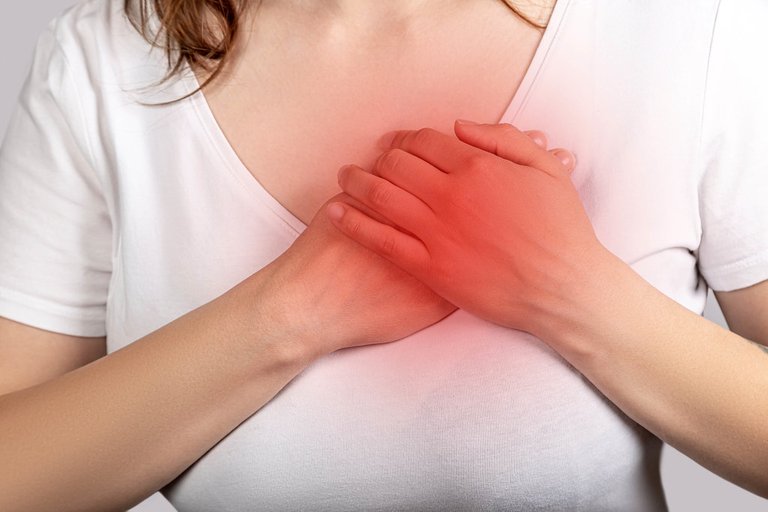A heart attack is not something we pray for, as a matter of fact, it scares me a lot and I hope never to get one. Since I am scared about getting one, I believe it is very important that I learn about all it entails so I can protect myself as much as I can.
Another name for a heart attack is, myocardial infarction, it happens when a section of the heart muscle fails to get sufficient blood. The more time passes without any treatment done for blood restoration, the more damage the heart muscle gets, and it could lead to a situation of permanent damage and death.
flickr.com

Heart attacks come with a lot of symptoms, some being more important than others and the symptoms felt could be gender-based too. In most cases, many people describe the symptoms of heart attack to include;
Chest pain, which could be a mild feeling of heaviness or discomfort. Often begins with the chest and then spreads to other areas like the arm, jaw, neck, and back towards the waist.
Fatigue.
Anxiety.
Inability to sleep appropriately.
Nausea or stomach discomfort.
Sweating.
Feeling dizzy/passing out.
Most cases of heart attacks happen as a result of blockage made to one of the blood vessels that supply the heart. This blockage usually happens due to plaque, which is a sticky substance that can build up on the inside of your arteries.
rawpixel.com
The build-up is medically called Atherosclerosis. In some cases, the deposits of plaque made inside the heart arteries could rupture or break open, and at the point where the rupture happened, blood clots could get stuck. If the clot gets to block the artery, then the heart muscle could be deprived of blood and cause a heart attack.
Regardless of the establishment of these facts, we also need to know that some heart attacks are possible without a blockage, although it is rare, it still accounts for around 5% of all cases of heart attacks. When this happens, it is usually triggered by one of these issues; A rare medical condition, trauma, coronary artery spasm, eating disorders, electrolyte imbalance, or obstruction that comes from other parts of the body.
Lots of factors contribute to your risk of having a heart attack, unfortunately, some of these risk factors are simply beyond human control.
Age and sex: With advancement in age, some the risk of getting a heart attack. The male gender stands a higher chance of getting a heart attack.
Health conditions: There are health conditions that place stress on your heart and increase the chance of heart attack. Some of those health conditions include; high cholesterol intake, obesity, and eating disorders.
Lifestyle: Some choices that are made end up affecting the functional ability of the heart. Smoking, lack of physical activity, excessive alcohol intake, and the use of drugs pose a danger to health and trigger heart attacks.
- Family history: If you have a parent or sibling with a history of heart attack, there is a strong risk of getting the same issue.
With the occurrence of a heart attack, there is damage to the heart muscle too, this is done through the forming of scar tissue. It takes weeks for the heart muscle to heal, but the time taken for the injury of the heart to heal depends on how severe the injury is and the usual rate of healing.
There is however nothing really to panic about because the heart is a tough organ, and even if part of the organ may have been seriously injured, the remaining parts of the heart continue to function. But, due to the damage, then the heart may be a little weak and unable to pump in blood as it should.
Depending on the sizer and location of the damage, recovery time varies, but proper communication with a specialist will help you know how fast or how slow the recovery is coming along.
Whenever there is a heart attack, bear in mind that, it is an emergency case that requires emergency attention. People survive heart attacks due to the effective treatment they receive, but without that, we could have issues with complications and limited chances of survival.
When it comes to protecting ourselves from getting a heart attack, it all boils down to those things we can control. We must stay away from smoking, ensure to consume a healthy diet, limit the intake of salt, consume less alcohol, and exercise regularly.
References.
https://www.cdc.gov/heartdisease/heart_attack.htm
https://my.clevelandclinic.org/health/diseases/16818-heart-attack-myocardial-infarction
https://www.medicalnewstoday.com/articles/151444#treatments
https://www.medicalnewstoday.com/articles/signs-of-a-heart-attack
https://www.nhs.uk/conditions/heart-attack/prevention/
https://www.heart.org/en/health-topics/heart-attack/about-heart-attacks

Hi, I am Tobi a writer, speaker, relationship blogger, and lover of good music. I love making friends and learning from people. Want to hear me speak on relationships and general life issues, you can find my YouTube channel where you can listen and watch any episode for free, please If do not forget to subscribe, friends. I sincerely appreciate every love I get from here, Kindly do well to keep them coming.
It is the vaccine that causes it. Plenty of documentation directly from Pfizer.
Can you explain friend, I do not understand the relationship between vaccination and heart attack.
Thanks for your contribution to the STEMsocial community. Feel free to join us on discord to get to know the rest of us!
Please consider delegating to the @stemsocial account (85% of the curation rewards are returned).
Thanks for including @stemsocial as a beneficiary, which gives you stronger support.
Good content shared by you, It was a comment in 66+ in the age in india but now a days We often look in 23+, last one week i seen 3 cases in young mans who all are under 27 years.
True friend, things like this used to affect older people before, but these days we find it very common amongst younger people.